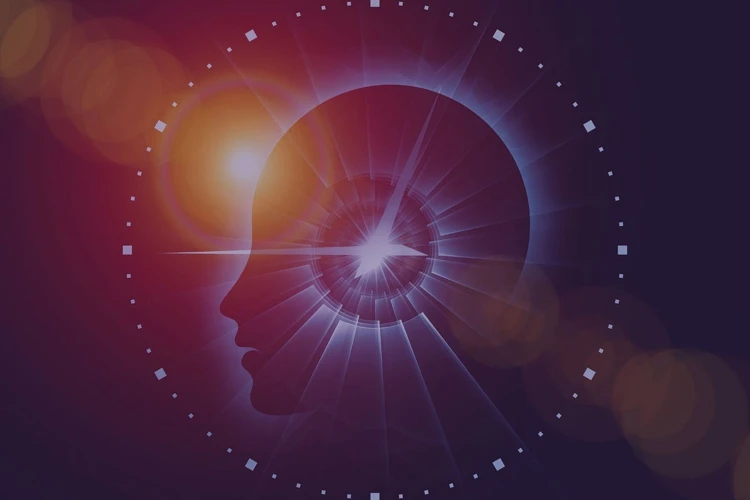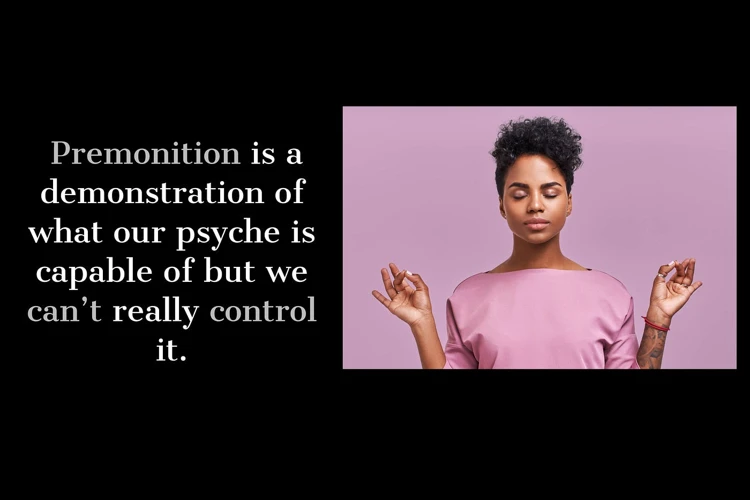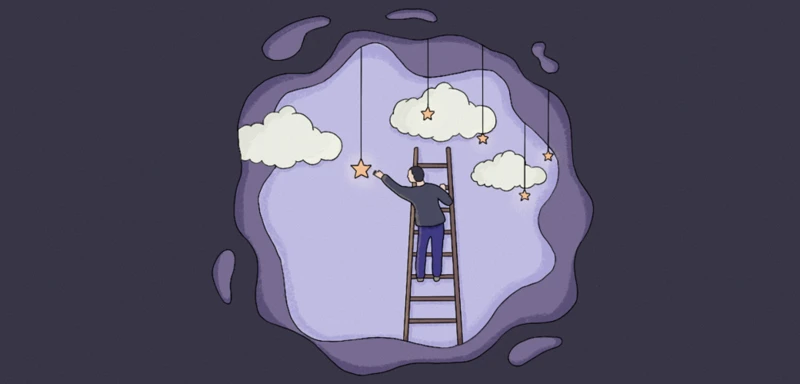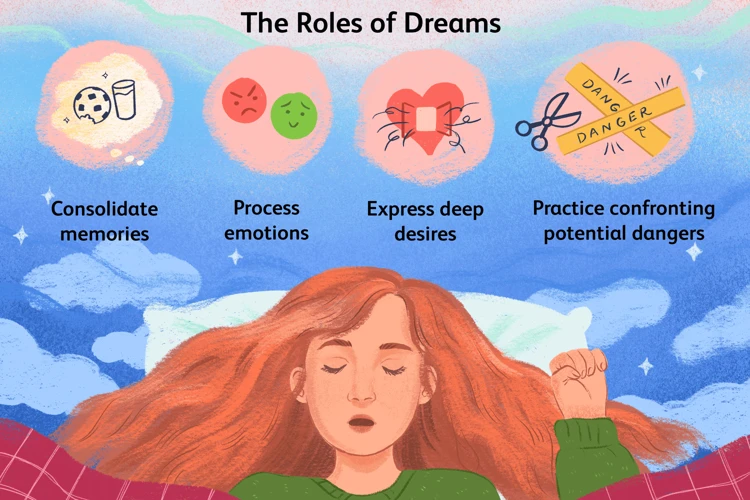Do you ever wake up from a dream feeling unsettled, believing that it may be a glimpse into the future? Premonition dreams have captivated and perplexed humanity for centuries, as we try to understand the mysteries of the human mind. These dreams are said to offer glimpses into events that have not yet occurred, leaving us with the haunting question: can dreams really predict the future? In this article, we will explore the definition of premonition dreams, the scientific and psychological perspectives surrounding them, famous examples, methods of interpretation, and even delve into the role of the unconscious mind and quantum physics in understanding these mystical visions of the night. Let us embark on a journey into the intriguing realm of premonition dreams and their potential connection to future events.
What are Premonition Dreams?

What are Premonition Dreams? Premonition dreams, also known as precognitive dreams, are dreams that are believed to provide glimpses or foreknowledge of future events. These dreams can be vivid and realistic, leaving the dreamer with a strong sense of certainty about the future occurrence. People who experience premonition dreams often report a feeling of déjà vu when their dreams come true, as if they have already lived those moments before. The concept of premonition dreams has existed throughout various cultures and historical periods, with many individuals claiming to have experienced these extraordinary dreams. While the scientific community may remain skeptical, premonition dreams continue to intrigue and fascinate those who have experienced them firsthand. To delve deeper into the world of premonition dreams, it is essential to understand the different types of premonition dreams and how they are defined.
Definition of Premonition Dreams
Definition of Premonition Dreams: Premonition dreams can be described as dreams that seemingly provide glimpses or foreknowledge of future events. These dreams often feel strikingly real and can be highly detailed, leaving the dreamer with a sense of certainty about the events they depict. Unlike ordinary dreams that may involve random images or experiences, premonition dreams are believed to offer insight into upcoming situations, encounters, or occurrences that have not yet taken place. The content of premonition dreams can vary widely, ranging from everyday events to significant life-changing moments. While there is still much debate and skepticism surrounding the validity of premonition dreams, many individuals claim to have experienced these prophetic dreams throughout history. To better comprehend premonition dreams, it is crucial to explore the different types of premonition dreams and understand the potential significance they hold. To continue exploring this topic further, you can delve into the understanding of premonition dreams and how they relate to our intuition and subconscious mind.
Types of Premonition Dreams
Types of Premonition Dreams Premonition dreams can manifest in different forms, providing insights into various aspects of future events. Here are some common types of premonition dreams:
- Symbolic Dreams: Symbolic premonition dreams are characterized by the use of symbols and metaphors to convey future events. In these dreams, the actual event may not be directly depicted but symbolized through objects, animals, or situations that hold significance.
- Literal Dreams: On the other hand, literal premonition dreams present future events in a straightforward and explicit manner. These dreams may provide detailed information about people, places, and specific actions that will occur.
- Prophetic Dreams: Prophetic premonition dreams offer glimpses into major events or incidents that have a significant impact on a large number of people. These dreams often relate to natural disasters, accidents, or significant global occurrences.
- Personal Warning Dreams: Personal warning premonition dreams involve situations that directly affect the dreamer or their immediate circle. These dreams may serve as a caution or advice, urging the dreamer to take specific actions to prevent negative outcomes.
- Precognitive Intuition: While not technically a dream, precognitive intuition involves a strong gut feeling or knowingness about future events without any tangible dream imagery. This intuitive sense often accompanies premonition dreams and can act as an additional confirmation.
Understanding these different types of premonition dreams can help individuals recognize and comprehend the messages they receive during their dream states. By exploring the intricacies of premonition dreams, we can begin to unravel the mysteries behind these extraordinary glimpses into the future.
Are Premonition Dreams Real?

Are Premonition Dreams Real? The question of whether premonition dreams are real is an intriguing one. While the scientific community may not have definitive answers, numerous anecdotal accounts and personal experiences point to the existence of these phenomena. From a scientific perspective, premonition dreams challenge our understanding of time, consciousness, and the workings of the human mind. Some researchers suggest that these dreams may be a result of the brain’s ability to process and analyze vast amounts of information on both a conscious and unconscious level, leading to glimpses of future events. Additionally, psychologists emphasize the role of intuition in premonition dreams, with some proposing that these dreams serve as a means for the unconscious mind to bring forward information that has not yet been consciously processed. While skeptics argue that these dreams can be explained by chance, selective memory, or the power of suggestion, those who have experienced premonition dreams believe otherwise. Ultimately, the question of whether premonition dreams are real may depend on individual experiences and beliefs. To gain a deeper understanding, it is essential to explore the scientific and psychological perspectives surrounding premonition dreams and the various examples that exist.
The Science Behind Premonition Dreams
The Science Behind Premonition Dreams While premonition dreams may seem mysterious and supernatural, some scientists have attempted to understand them from a more rational perspective. One theory suggests that premonition dreams could be attributed to the role of intuition in the dreaming state. Intuition is the ability to understand or sense something without conscious reasoning, and it is believed that our dreams tap into this intuitive knowledge. These dreams may be a way for our unconscious mind to process subtle cues and signals from the world around us, which are then translated into symbolic imagery in our dreams. Another scientific explanation explores the concept of quantum physics and its relation to the dream universe. Quantum physics suggests that time is not a linear progression, but rather a complex web of interconnected events. According to this theory, premonition dreams may occur when the dreamer taps into this interconnectedness, allowing them to glimpse potential future outcomes. While these scientific explanations provide some insights, the true nature of premonition dreams remains an enigma, bridging the gap between science and the unexplained mysteries of the human mind. To further explore the topic of premonition dreams and their role in our lives, visit our article on The Role of Intuition in Premonition Dreams.
Psychological Perspectives on Premonitions
Psychological Perspectives on Premonitions offer another lens through which to understand these mystical experiences. From a psychological standpoint, premonition dreams are often associated with the power of the subconscious mind. According to theories, the subconscious mind is constantly processing information and making connections that our conscious mind may not be aware of. It is believed that premonition dreams may be a result of this subconscious processing, as our minds pick up on subtle cues and signals from our surroundings. Additionally, some psychologists argue that premonition dreams are a manifestation of our intuitive abilities. Intuition is the ability to understand or know something instinctively, without the need for conscious reasoning. Similar to how we may have a “gut feeling” about certain situations, premonition dreams could be a way for our intuition to communicate important information to us. Exploring the psychological perspectives on premonitions can shed light on the intricate workings of our minds and the potential abilities we possess. To further understand and potentially explore your own premonition dreams, check out our article on premonition dream abilities, tips, and techniques.
Examples of Premonition Dreams

Examples of Premonition Dreams There have been numerous accounts of premonition dreams throughout history, both from famous individuals and ordinary people. These remarkable stories serve as intriguing evidence of the potential connection between dreams and future events. One famous example is the dream of Abraham Lincoln, who reportedly dreamt of his own assassination just days before it occurred. Another well-known premonition dream is that of Mark Twain, who dreamt of his brother’s demise and described the dream in vivid detail before receiving the news of his brother’s passing. Additionally, there are countless personal experiences shared by individuals who claim to have dreamt of calamities, accidents, or even positive events that later came true. While these examples cannot be scientifically proven, they highlight the mysterious nature of premonition dreams and raise questions about the potential predictive power of our dreams.
Famous Premonition Dream Stories
Premonition dreams have been a subject of fascination and awe throughout history, with several famous stories highlighting their potential accuracy. One notable example is the account of Abraham Lincoln, who reportedly dreamt of his own assassination just days before it occurred. In his dream, Lincoln saw himself in a room filled with mourners and felt a sense of foreboding. Another famous premonition dream involves Mark Twain, who dreamt of his brother’s demise before receiving the news of his passing the next day. Similarly, the sinking of the Titanic is said to have been foretold in a series of premonition dreams, where individuals dreamt of a massive ship hitting an iceberg and meeting its tragic fate. These stories, along with countless others, have sparked intrigue and debate surrounding the possibility of dreams offering glimpses into future events. While it remains uncertain whether these dreams were truly prophetic or simply coincidences, they continue to captivate the imagination and leave us questioning the mysteries of the human mind.
Personal Experiences with Premonition Dreams
Personal Experiences with Premonition Dreams: Personal accounts of premonition dreams play a crucial role in shedding light on the mysterious phenomenon. Many individuals claim to have had prophetic dreams that accurately predicted future events, leading to a deep sense of awe and wonder. Some people have reported dreaming of a specific event, such as an accident or an encounter with a stranger, only to witness the exact scenario unfold in real life days, weeks, or even months later. Others have experienced premonition dreams that provided warnings or guidance, allowing them to make important decisions or avoid potential dangers. These personal experiences often leave individuals questioning the nature of reality and the power of the human mind. While skeptics argue that these experiences may be mere coincidences or misinterpretations, for those who have experienced premonition dreams, the impact is undeniably profound. The subjective nature of these personal experiences adds another layer of complexity to the ongoing debate surrounding premonition dreams and their ability to seemingly transcend time and space. We will now explore some famous examples of premonition dreams to further illustrate the inexplicable nature of these phenomena.
Interpreting Premonition Dreams

Interpreting Premonition Dreams
Interpreting premonition dreams can be a fascinating and complex process. These dreams often contain symbolic elements that require careful analysis to unravel their meaning. Here are some key factors to consider when interpreting premonition dreams:
Symbols and Signs: Premonition dreams are often filled with symbols and signs that can hold significant meaning. It is important to pay attention to these symbols and explore their possible interpretations. For example, dreaming of a clock ticking rapidly may symbolize an imminent deadline or time running out. Keeping a dream journal can help track recurring symbols and patterns, aiding in their interpretation.
Distinguishing Between Ordinary Dreams and Premonition Dreams: It is crucial to distinguish between ordinary dreams and premonition dreams. Premonition dreams tend to feel more vivid, have a stronger emotional impact, and leave a lasting impression upon waking. Additionally, premonition dreams may contain specific details about future events that ordinary dreams do not possess.
Intuition and Gut Feelings: Trusting your intuition and gut feelings can be valuable when interpreting premonition dreams. Pay attention to the emotions and sensations associated with the dream. Often, the intuition or gut feeling that accompanies a premonition dream can provide insights into its meaning and significance.
Seeking Guidance: Sometimes, obtaining guidance from a professional dream analyst or psychologist can help in interpreting premonition dreams. Their expertise and knowledge can provide useful insights and perspectives that may not be apparent to the dreamer.
Remember, the interpretation of premonition dreams is subjective, and the personal experiences and beliefs of the dreamer play a significant role. Taking the time to reflect, analyze, and explore the possible meanings and implications of premonition dreams can lead to a deeper understanding of their messages.
Symbols and Signs
Symbols and Signs play a significant role in interpreting premonition dreams. In these dreams, the subconscious mind often communicates through symbols and signs that may hold hidden meanings. It is crucial to pay attention to these symbols and signs to uncover the potential messages or predictions within the dreams. Each symbol or sign in a premonition dream can have multiple interpretations, and it is essential to consider the context of the dream and personal associations with the symbols. Some common symbols that frequently appear in premonition dreams include:
- Animals: Animals in dreams can represent instincts, emotions, or spiritual symbolism. For example, a black cat may symbolize intuition or a warning, while a soaring eagle may represent freedom and perspective.
- Natural Elements: Elements such as water, fire, earth, or air can symbolize various aspects of life and emotions. Calm water may signify tranquility, while a raging storm could represent impending challenges.
- Numbers: Numbers can hold significant meaning in premonition dreams. Pay attention to recurring numbers or any numbers that stand out as they may represent dates, events, or personal significance.
- Objects: Objects that appear in premonition dreams may hold symbolic or personal meaning. For example, a broken mirror could represent a fear of bad luck or a need for self-reflection.
It is important to note that symbolic interpretations can vary from person to person, as each individual may have unique associations and experiences with the symbols. Keeping a dream journal can help identify recurring symbols and patterns, assisting in the interpretation of premonition dreams. By understanding the symbols and signs within premonition dreams, individuals can gain insights into potential future events and better prepare themselves for what may lie ahead.
Distinguishing Between Ordinary Dreams and Premonition Dreams
Distinguishing between ordinary dreams and premonition dreams can be a challenging task. While both types of dreams occur during the sleep cycle, premonition dreams possess unique characteristics that set them apart from typical dreams. Here are some key factors to consider when trying to differentiate between the two:
1. Vividness and Detail: Premonition dreams are often exceptionally vivid and detailed. They tend to be more lifelike, with a heightened sense of clarity and realism. Ordinary dreams, on the other hand, may be hazy, fragmented, or lack vividness.
2. Emotional Intensity: Premonition dreams tend to evoke strong emotions in the dreamer. These emotions can range from excitement and anticipation to fear or anxiety. Ordinary dreams may also evoke emotions, but they are often more fleeting or less intense.
3. Symbolism and Predictive Elements: Premonition dreams may contain specific symbols, signs, or details that are uniquely connected to future events. These symbols or elements may serve as a clue or foreshadowing of what is to come. Ordinary dreams, however, may not possess such predictive elements and often involve random, unrelated scenarios or symbols.
4. Accuracy and Validation: Premonition dreams are validated when the events portrayed in the dream align with actual occurrences in the future. Retroactively confirming the accuracy of a dream can help distinguish it from an ordinary dream that lacks any connection to real-life events.
It is important to note that not all dreams are premonitions, and it can be challenging to differentiate between ordinary dreams and those that hold future significance. Keeping a dream journal, paying attention to recurring themes or symbols in dreams, and reflecting on the emotions and details of each dream can help in discerning whether a dream may be a premonition or simply a product of the subconscious mind. Remember, the interpretation and understanding of dreams are highly subjective, and personal experiences play a vital role in unraveling their meanings.
Can Dreams Predict the Future?

Can Dreams Predict the Future? This is a question that has intrigued both scientists and dreamers alike. While there is no concrete evidence to prove that dreams can predict the future, there are intriguing theories that suggest a potential connection between dreams and future events. One possible explanation is the role of the unconscious mind. The unconscious mind is believed to have access to information that our conscious mind is not aware of, allowing it to pick up on subtle cues and patterns that may hint at future outcomes. Additionally, some theories in quantum physics propose the idea of a dream universe, where dreams could tap into alternate realities or parallel dimensions where the future is already determined. These theories suggest that while dreams may not directly predict the future, they could present possibilities or glimpses of potential future events. It is important to approach this topic with an open mind and consider the various perspectives and theories that exist.
The Role of the Unconscious Mind
The Role of the Unconscious Mind in premonition dreams is a subject of much speculation and debate. According to some psychologists and scientists, premonition dreams may be a result of our unconscious mind processing and interpreting subtle cues and information that we may not consciously perceive. Our unconscious mind has the ability to pick up on patterns, subtle changes, and connections that our conscious mind may overlook. It gathers information from our daily experiences, knowledge, and memories, and may present this information to us in the form of dreams. In the case of premonition dreams, the unconscious mind may be piecing together future events based on these fragments of information. It is suggested that premonition dreams serve as a way for our unconscious mind to communicate with our conscious self, offering us snippets of what is to come. However, it is important to note that the role of the unconscious mind in premonition dreams is still not fully understood and is still a subject of ongoing research and exploration in the field of psychology and neuroscience.
Quantum Physics and the Dream Universe
Quantum Physics and the Dream Universe The intersection of quantum physics and the dream universe presents an intriguing perspective on the nature of premonition dreams. According to quantum physics, reality is not fixed and determined but rather exists in a state of probability and potentiality. Quantum entanglement suggests a fundamental interconnectedness of all particles in the universe, regardless of their spatial separation. Some researchers propose that the dream state may allow for a deeper connection to these quantum fields of probability. Dreams are considered a product of the unconscious mind, which has access to an extensive network of information and experiences beyond our conscious awareness. In this context, premonition dreams could be seen as glimpses into the quantum field, where information about the future is accessible. The dream universe may serve as a medium through which this quantum entanglement manifests, allowing individuals to receive fragments of future events in their dreams. While the link between quantum physics and premonition dreams remains speculative, it offers a thought-provoking avenue for considering the possibilities and dimensions of dreams and their potential connection to the future. To explore this further, it is crucial to delve into scientific studies on premonition dreams and their implications.
Scientific Studies on Premonition Dreams
Scientific studies on premonition dreams have been conducted to explore the phenomenon and provide an evidence-based understanding. While the research in this area is limited, some studies have yielded intriguing findings. One such study conducted by Dr. Julia Mossbridge and Dr. Patrizio Tressoldi involved analyzing dream reports and comparing them to events that occurred after the dreams. The study found a significant association between dream content and future events, suggesting that dreams may indeed have a predictive element. Another study by Dr. Caroline Watt at the University of Edinburgh examined the ability of participants to predict future events through dreams. The results indicated that participants did not demonstrate a statistically significant ability to predict events beyond chance. However, it’s worth noting that these studies have faced criticism for their methodologies and the subjective nature of dream interpretation. Further research is still needed to fully understand the scientific basis of premonition dreams. Despite the limitations, these studies offer intriguing insights into the topic and lay the foundation for future investigations.
Conclusion
Conclusion In conclusion, premonition dreams remain a subject of fascination and intrigue. While there is no concrete scientific evidence to prove that dreams can predict the future, countless individuals have claimed to have had prophetic dreams that later came true. The human mind is a complex and mysterious entity, capable of perceiving and interpreting subtle signals and patterns that may elude our conscious awareness. Whether premonition dreams are based on intuitive abilities, psychological processes, or even connections to quantum physics remains open to interpretation and further scientific study. As we continue to explore the depths of the human mind and its relationship with dreams, premonition dreams will likely continue to captivate our imagination and spark curiosity about the nature of time, consciousness, and the boundless possibilities hidden within the realm of dreams. Whether you believe in the power of premonition dreams or remain skeptical, there is no denying the allure and wonder that they hold for those who have experienced them firsthand.
Frequently Asked Questions
What is the definition of premonition dreams?
Premonition dreams are dreams that are believed to offer glimpses or foreknowledge of future events. They often leave the dreamer with a strong sense of certainty about the future occurrence.
Are premonition dreams real or just coincidences?
The reality of premonition dreams is a subject of debate. While some believe that these dreams can accurately predict future events, others attribute them to coincidences or the brain’s ability to perceive patterns.
What are the different types of premonition dreams?
There are various types of premonition dreams, including dreams of personal premonition (related to the dreamer’s own life), dreams of collective premonition (related to larger events affecting society), and warning dreams (which alert the dreamer to potential dangers or upcoming situations).
Can anyone experience premonition dreams?
Yes, anyone can potentially experience premonition dreams. Some people may have a natural inclination towards having these dreams, while others may have them as isolated incidents.
Is there a difference between premonition dreams and ordinary dreams?
Yes, there are distinguishing factors between premonition dreams and ordinary dreams. Premonition dreams are often more vivid, detailed, and leave a lasting impression on the dreamer. They also tend to involve events that have not yet occurred.
What are some famous stories of premonition dreams?
There are several well-known stories of premonition dreams, such as Abraham Lincoln dreaming about his assassination, Mark Twain dreaming about his brother’s death, and Robert J. Wicks dreaming about the 9/11 terrorist attacks.
How can premonition dreams be interpreted?
Premonition dreams can be interpreted through analyzing symbols, signs, and emotions that occur within the dream. It is important to pay attention to any recurring themes or feelings that may hold significance in relation to future events.
Does the unconscious mind play a role in premonition dreams?
Many theories suggest that the unconscious mind plays a significant role in premonition dreams. It is believed that the unconscious mind may tap into a deeper level of awareness and access information that is not readily available to the conscious mind.
What is the relationship between premonition dreams and quantum physics?
Some proponents argue that premonition dreams may be connected to the principles of quantum physics, where time and space are not linear. The idea is that dreams may provide access to a greater consciousness beyond our current understanding.
Are there any scientific studies on premonition dreams?
While the scientific study of premonition dreams is still limited, there have been some studies conducted on related phenomena such as precognition and intuition. These studies aim to explore the potential existence of premonition capabilities.








